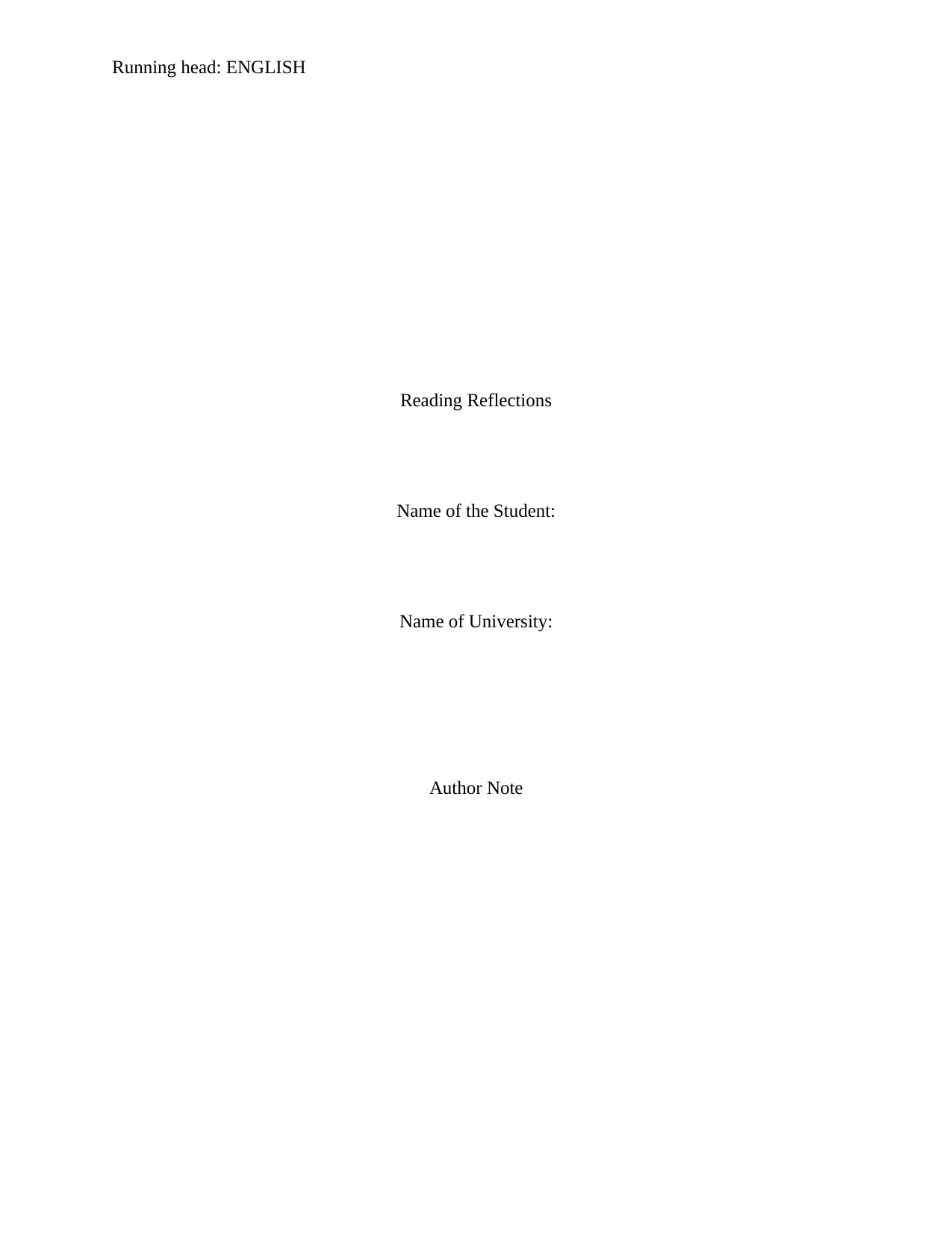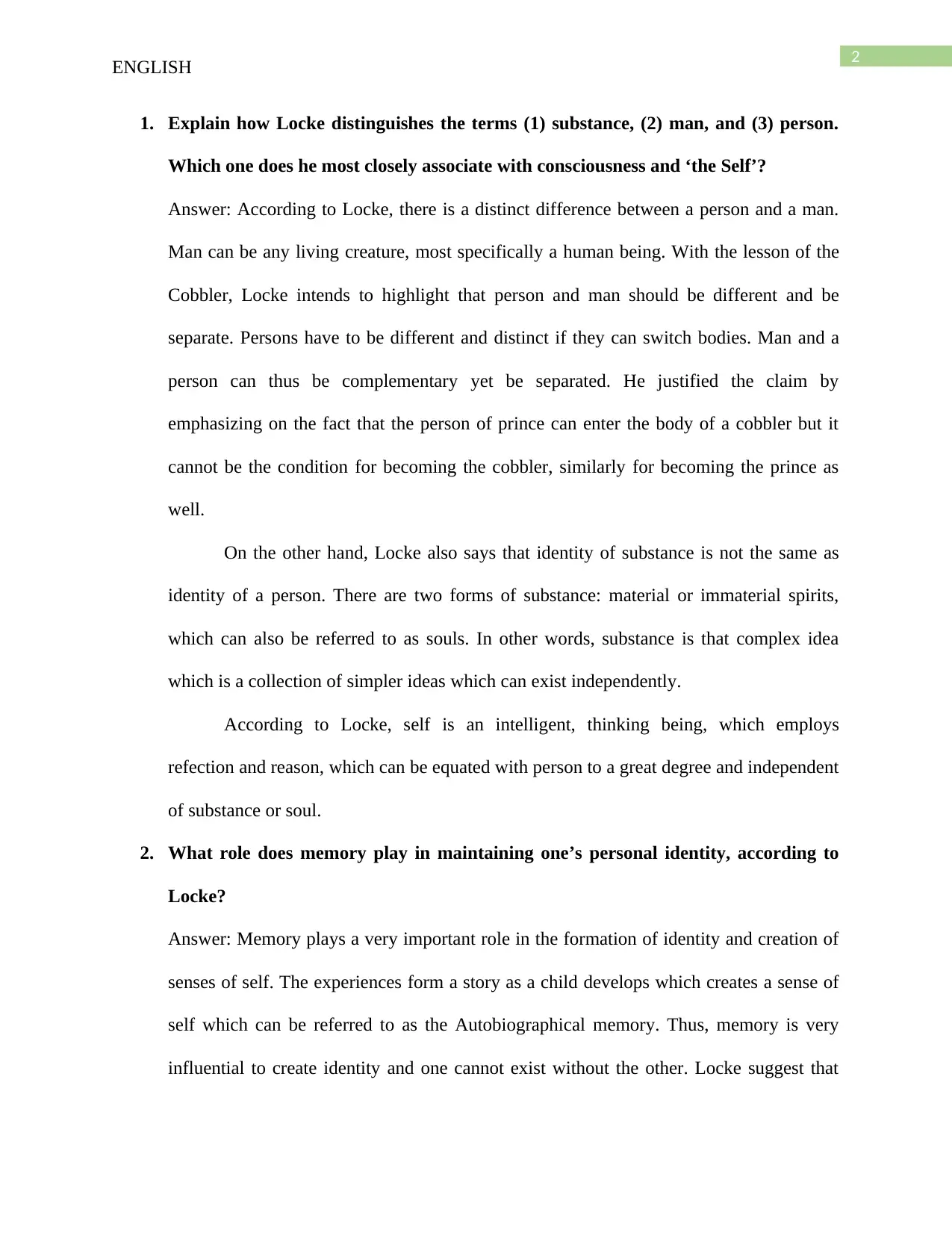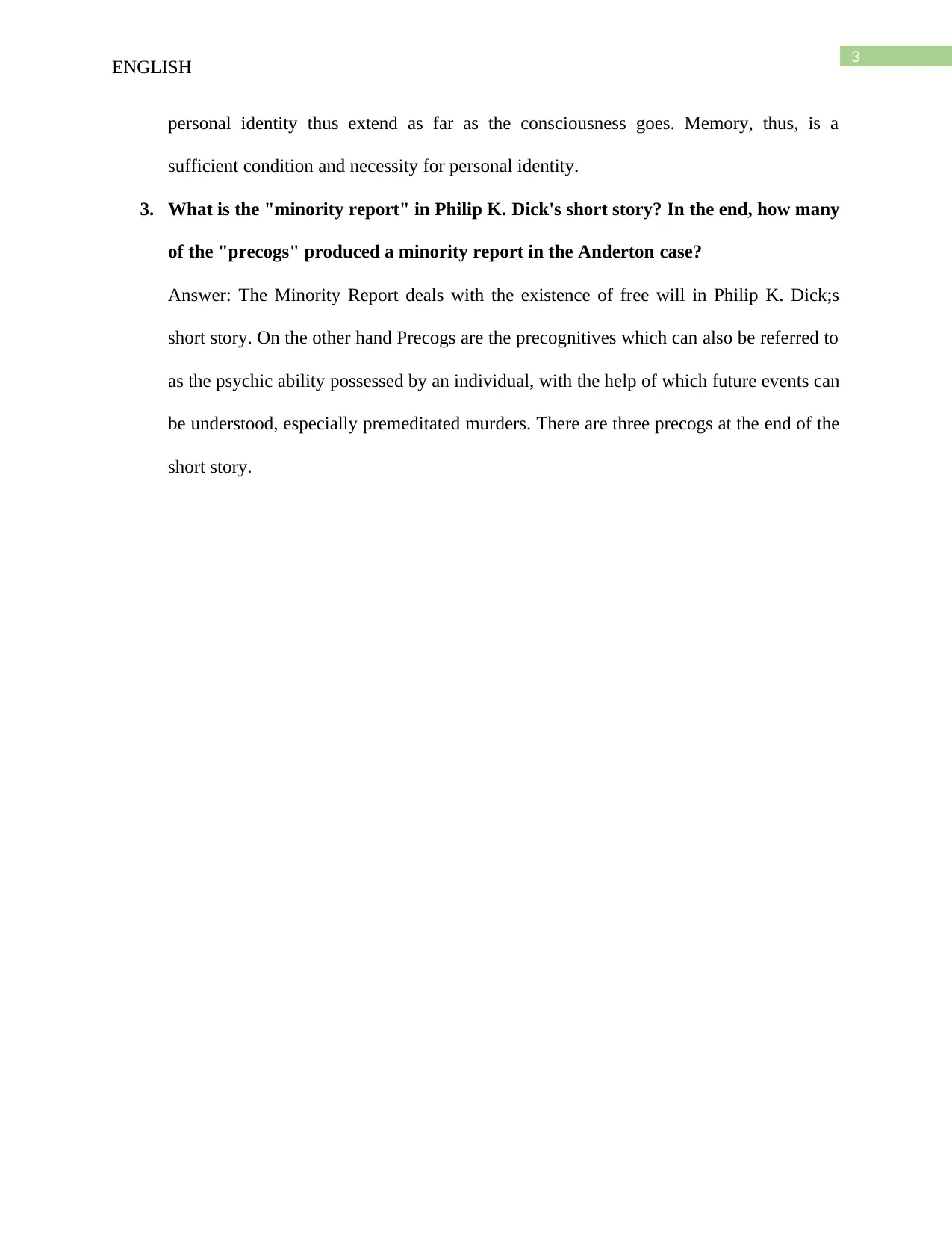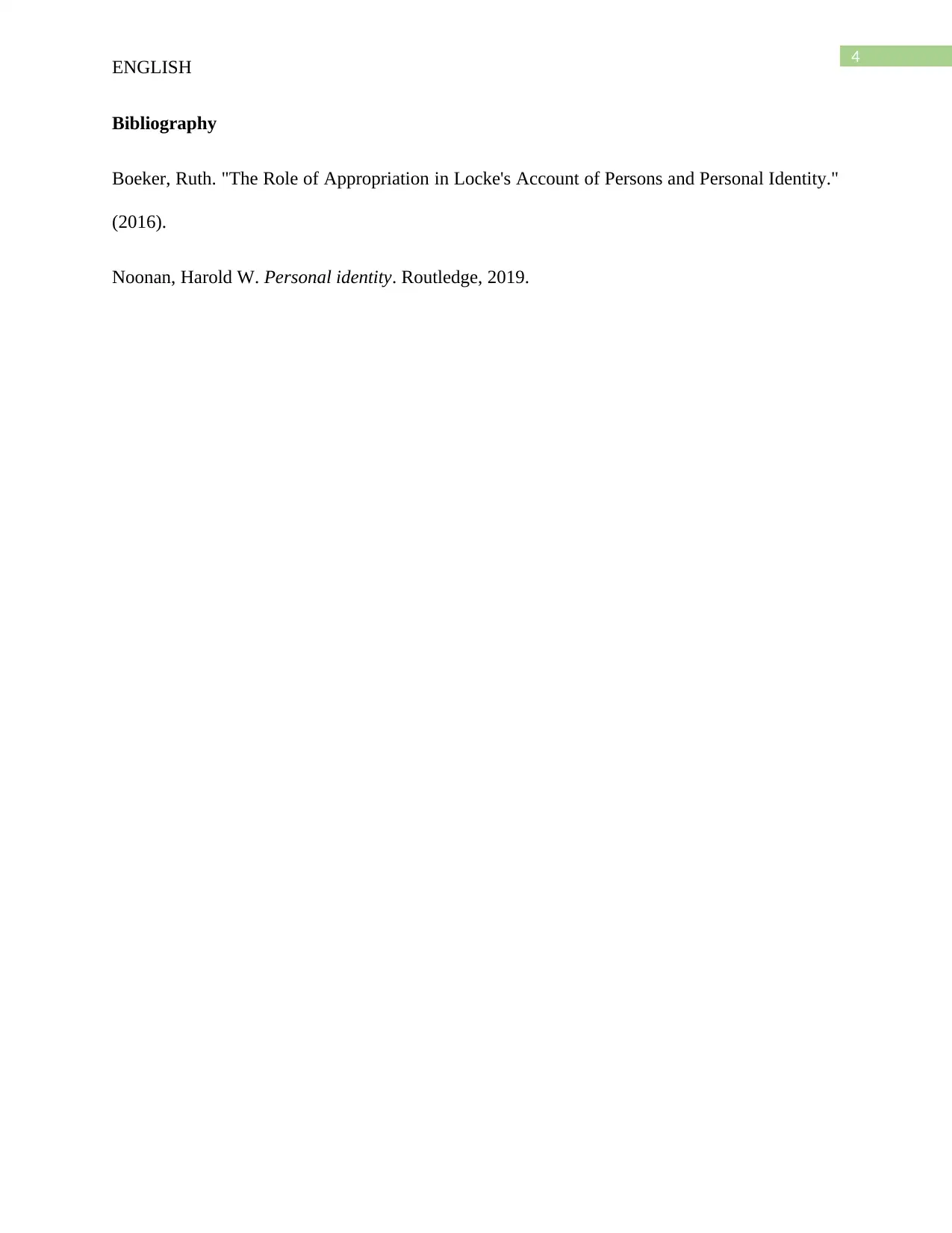Philosophy Assignment: Locke, Memory, and 'Minority Report' Analysis
VerifiedAdded on 2022/09/16
|4
|524
|23
Homework Assignment
AI Summary
This assignment explores the philosophical concepts of personal identity and consciousness as presented by John Locke, and the science fiction themes in Philip K. Dick's 'Minority Report'. The assignment begins with a discussion of Locke's distinction between substance, man, and person, highlighting his association of consciousness and the self with the concept of a person. It then examines the role of memory in maintaining personal identity according to Locke, emphasizing the importance of memory in the formation of a sense of self. The assignment then transitions to an analysis of Philip K. Dick's short story, 'The Minority Report,' which explores the concept of free will and precognition. The 'precogs' ability to foresee future events and the resulting 'minority report' are discussed in relation to the question of predetermined fate versus individual agency. The assignment also provides a bibliography of sources used.
1 out of 4






![[object Object]](/_next/static/media/star-bottom.7253800d.svg)